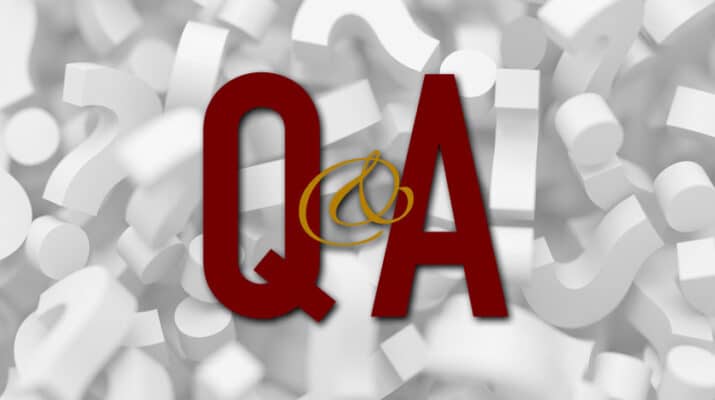Mental health issues, including depression, are behind a great number of suicides, says coordinator of the Suicide Prevention Coalition of Erie County
By Brenda Alesii

The difficult topic of suicide has been prominent in the news over the past few weeks. On Jan. 30, former Miss USA 2019 Cheslie Kryst took her own life in dramatic fashion in New York City. Kryst was an accomplished woman, earning a law degree and an MBA, and also worked as a social activist and an entertainment correspondent.
Kryst’s mother said, after the devastating loss of her 30-year-old daughter, that Kryst was dealing with high-functioning depression, which she hid until shortly before her tragic death.
In Good Health recently spoke with Celia Spacone, Ph.D., the coordinator of the Suicide Prevention Coalition of Erie County, which is administered by Crisis Services; it includes numerous agencies, school districts, hospitals and community stakeholders. A Grand Island resident and former director of the Buffalo Psychiatric Center, Spacone currently works out of Crisis Services offices and is passionate about helping people who may be contemplating suicide.
———
Q. Why do people take their own lives?
A. The reasons are typically multifaceted. It’s often several things coming together, a good portion of the people have mental health issues, including depression. That is sad to me because depression is very treatable. Because there is still a stigma about mental health, many people who have anxiety, depression, suicidal thoughts are afraid to say it out loud to family, friends or to health professionals.
‘The largest population group affected by suicide is men in the middle years of their lives.’
Q. It’s shocking when high-profile people die by suicide. Names like Anthony Bourdain, Robin Williams, Kate Spade, Chris Cornell, Chester Bennington come to mind. What group is most affected by suicide?
A. The largest population group affected by suicide is men in the middle years of their lives. Much of that is related to expectations about what it means to be a man, what we expect men to be, perhaps their fear of showing weakness, or the stress and burden a man carries from a stressful work environment, family responsibilities. There is an informative public service announcement on our website called “Be A Man,” which addresses this issue. Women tend to seek more mental health services than men, and make more attempts. Men tend to use more lethal methods like firearms.
Q. When a well-known person takes his or her life, is there a copycat effect?
A. There can be — which is why the way these situations are reported is so important. By its nature, the story is dramatic and it’s blasted all over. Health professionals have urged the media not to describe the method of suicide. Some of the language can be triggering and offensive. Some impressionable youth could think that suicide is what everyone is doing. Because youngsters often learn by modeling behavior, this can be potentially dangerous for them. Media reports can be irresponsible — an outlet printed Kate Spade’s suicide note before her daughter saw it.
Q. Are there systems in place to temporarily hold firearms?
A. Yes, during a time of crisis — a divorce, economic hardship, poor health leading to a feeling of hopelessness — gun shops, gun clubs and many law enforcement agencies will temporarily hold the individual’s firearms. No reason has to be given to authorities and it is voluntary. A map showing locations in Erie and Niagara Counties is on our website. It’s important to have some time and distance during that crisis and not have lethal methods readily available.
Q. Some of the suicide-related statistics are staggering.
A. Yes, more police officers, for example, die by suicide than in the line of duty. Both male and female veterans have a higher than average rate of suicide. For young people between the ages of 10 and 24, suicide in the United States is the second highest cause of death.
Q. Why is listening to someone feeling vulnerable a good practice?
A. It’s important to let the person talk, not to judge or problem solve. If he or she were having a heart attack, for instance, it wouldn’t be appropriate to say “you should change your diet, exercise, reduce stress.” It’s not the time for giving advice.
Q. What resources are available if a friend or family member is struggling?
A. Our coalition does education programs for churches, clubs, organizations, senior centers and the like. We discuss risk factors and warning signs and explain why a struggling loved one should not be ignored. Crisis Services can offer support, guidance, and referrals. Even during the pandemic, Crisis Services did not close for even one minute. The agency is available 24/7 by calling 716-834-3131.
Q. Is there help available for survivors?
A. Support groups and therapists can be found at www.AFSP.org. Crisis Services will do outreach at homes of survivors and link them to agencies. It takes a long time to heal. Don’t ignore survivors because it is an already isolating situation. If you don’t know what to say, simply say that you’re there to listen and you’re sorry the survivor is going through this tough experience.
Editor’s Note: To learn more about suicide and Suicide Prevention Coalition of Erie County, visit www.suicidepreventionECNY.org.
To find a support group or therapists, visit www.AFSP.org

